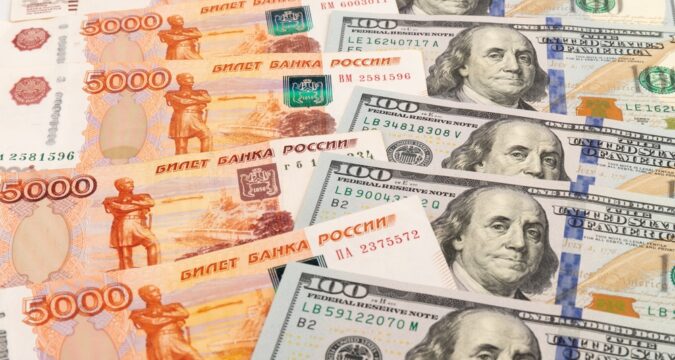
The Russian central bank is scheduled for its meeting on Friday and is widely expected to keep its interest rate at 7.5%.
However, economists are expecting the Bank of Russia to give hawkish signals, given that inflation in the country is becoming more pronounced.
The interest rate
Last year in late February, the Russian central bank delivered an emergency interest rate hike to 20% after the government decided to send its troops into Ukraine.
The action resulted in wide-ranging Western sanctions imposed on the nation, which prompted the central bank to gradually reverse the rate hike.
The Central Bank of Russia (CBR) delivered the last rate cut in September and since then, the interest rate has been held at 7.5%.
But, inflation has continued to remain stubbornly high, stymieing all the efforts the central bank has been making for loosening the monetary policy.
Therefore, economists and analysts have predicted that Russia would stick to the 7.5% interest rate on Friday.
Analysts said that a rate hike is currently not needed for dealing with the inflation dynamics, but there is a rise in pro-inflationary risks.
Since December, the three prominent pro-inflationary risks have become more pronounced, which include labor market shortages, a widening budget deficit, and a weaker Russian ruble.
The risks
Since early December, there has been a 15% decline in the Russian ruble against the US dollar, while the Russian central bank has warned that due to the partial mobilization of troops for the war in Ukraine, there has been a decline in the labor force.
This could stoke inflation in Russia in the long term. Market analysts said that the inflation risks continue to persist in the market, which is apparent in the expectations as well as the weekly consumer price index (CPI) numbers.
They also added that there is another serious risk due to budget expenditures. The budget deficit is expected to widen even more than has been forecasted.
This is due to the fact that embargoes and price caps are driving down the gas and oil revenues of the country.
Monetary policy
This has prompted the central bank to declare that they would have to tighten the monetary policy to counter the softer fiscal policy.
The prices of the OFZ treasury bonds of the government are already signaling a tighter monetary policy. There has been a steady rise in yields since mid-October, which usually increases inversely to bond prices.
On Monday, the 10-year benchmark OFZ yield was about 10.61%. However, the likely drop in annual inflation to 2% to 3% could limit the options of the central bank when it comes to hiking rates.
While inflation is still far above the 4% target of the central bank, it has come down from the high of 20 years that it had reached not long after the Ukraine conflict has begun.
Last year, annual inflation had stood at 11.9% and it has come down to 11.5%. Ksenia Yudaeva, the First Deputy Governor of the central bank, said last week that the bank may have to revise its average rate this year.


